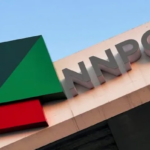The speed at which international oil companies (IOCs) are leaving Nigeria is to blame for Nigeria not meeting its current 1.8 million barrels per day oil production quota assigned by the Organisation of the Petroleum Exporting Countries (OPEC).
The Minister of State, Petroleum, Timipre Sylva stated this at a ministerial plenary, at the ongoing Ceraweek, in Houston, Texas.
- NIGERIA DAILY: Surviving Without Electricity In A ‘Hot’ Nigeria
- Nigeria Agribusiness Group wants anchor borrowers institutionalised
He said, “The rate at which investments were taken away was too fast. Lack of investment in the oil and gas sector contributed to Nigeria’s ability to meet OPEC quota. We are not able to get the needed investments to develop the sector and that affected us.”
Nigeria’s OPEC quota is pegged at 1.8m bpd but in the last few years, the country has struggled between 1.3m and 1.4m bpd.
The minister also cited security challenges affecting the growth of the petroleum sector as well as the discouragement of funding for the sector due to a concerted shift to renewable energy.
The minister, according to a statement by his spokesman, Horatius Egua, however called for a change of attitude stressing that in decades to come hydrocarbons will continue to play a central role in meeting the energy needs of the world.
Sylva told the gathering that Africa should be allowed to champion a gradual energy transition to meet the needs of the over 600m people who lack access to energy.
He said: “There are about 600m people in Africa without access to power and of that number the majority live in Nigeria. And of the over 900m people without access to power in the world, the majority live in Africa. So how do we provide access to power for these people if you say we should not produce gas?
“We believe that gas is the way to go. We believe that gas is the way forward and the one access to power,” the minister said.

 Join Daily Trust WhatsApp Community For Quick Access To News and Happenings Around You.
Join Daily Trust WhatsApp Community For Quick Access To News and Happenings Around You.


